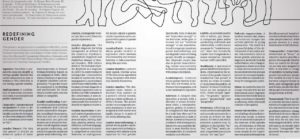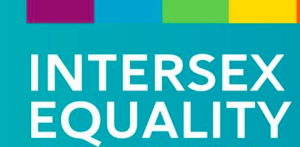Together We Fixed it: De-Pathologization Win in Nat’l Geographic!
What a great Christmas/Hanukkah gift to the intersex community to have our concerns listened to & addressed! As this National Geographic article discusses, their January “Gender Revolution” issue has prompted many questions, one of them initiated by our founding director Hida Viloria–who is quoted in the piece–as well as several other intersex activists and the many allies we called upon to contact @NatGeo.
Last week, on Friday, December 16th, we were distressed to learn that being intersex had been defined as a “disorder” in “Gender Revolution”, in an article which defined the other gender communities featured in it with their chosen, respectful labels.

Our E.D. immediately called upon intersex people and our allies to respectfully contact the editors and inform them of why pathologization is harmful to the intersex community and our families. We were thrilled and touched to see that throughout the weekend that followed, dozens of you did! Our E.D. also contacted the editor-in-chief Susan Goldberg directly, on behalf of the Organization Intersex International (OII World) and OII-USA, to request that the definition be changed to one which does not pathologies us.
The following business day, we received the good news from National Geographic’s editors that, in response to our request and others, they had changed the definition of intersex in all digital issues, and would be running a correction in the next issue! (It was unfortunately too late to change news stand issues, which had already been printed.) As editor-in-chief Susan Goldberg explains in the article:
“We consulted numerous experts to be both sensitive and accurate on this point. Many readers think we still got it wrong. ‘This definition is opposed by intersex advocates across the globe for the simple reason that it pathologizes us, thereby promoting the erroneous, stigmatizing view that intersex people require “fixing,”‘ wrote Hida Viloria, executive director of the Intersex Campaign for Equality. Kimberly Zieselman, executive director of InterACT, an intersex youth advocacy organization, wrote that our definition is ‘highly offensive to many in our community…and will actually be harmful if printed.'”
We note that while the “experts” National Geographic consulted on intersex issues suggested defining us with our current medical label “disorders of sex development”, it is well known that this label is opposed by the entire international intersex human rights advocacy community. Like gays and lesbians, and the transgender community after them, who were also formerly defined as “disordered”, we are fighting to end pathologization as we know that attaining human rights and equality is extremely difficult when who and what you are is defined as innately inferior and in need of correction.
Thus, we encourage these experts, as well as doctors, health care providers, an others working with intersex people, to take note: intersex is a natural human variation of sex, and we should be medically defined as such rather than with a pathologizing label that incites discrimination. We also note that trans people are not defined or referred to with their medical label, “gender dysphoria”, in the press (as “people with gender dysphoria”), because using medical labels to describe communities is de-humanizing and breeds discrimination and inequality. Thus, we should likewise be described in the press and all but clinical setting as “intersex people”.
We extend our enormous thanks to the editors at National Geographic, particularly Susan Goldberg, for honoring our request to be spoken about with respectful, de-pathologizing, equality minded language! It would have been a travesty for intersex people to be defined as innately flawed or inferior in an otherwise respectful, forward-thinking issue of such a well respected, well read magazine. Although we would have preferred that they use the definition of intersex we suggested from the UN’s Intersex Fact Sheet (because the word “hermaphrodite”, or it’s shortened version “herm”, is not outdated and is in fact used by many community members to refer to themselves), this is an incredible victory for intersex equality!
We would also like to thank all the friends, family members and allies who contacted National Geographic on behalf of intersex people, and our fellow intersex activists who did the same, particularly intersex/gender activist Anunnaki Ray–who first brought the issue to our attention and rallied thousands on social media regarding the need to address the pathologizing definition–Pidgeon Pagonis, who is featured on the cover of the digital version of the issue and who also contacted National Geographic to request a change to the definition, and InterACT E.D. Kimberly Zieselman, who is quoted in the piece along with our E.D. We know that we could not have done this without all your support, and are thrilled that, together, we fixed this!
#IntersexEquality #WeArePeople #GenderRevolution

